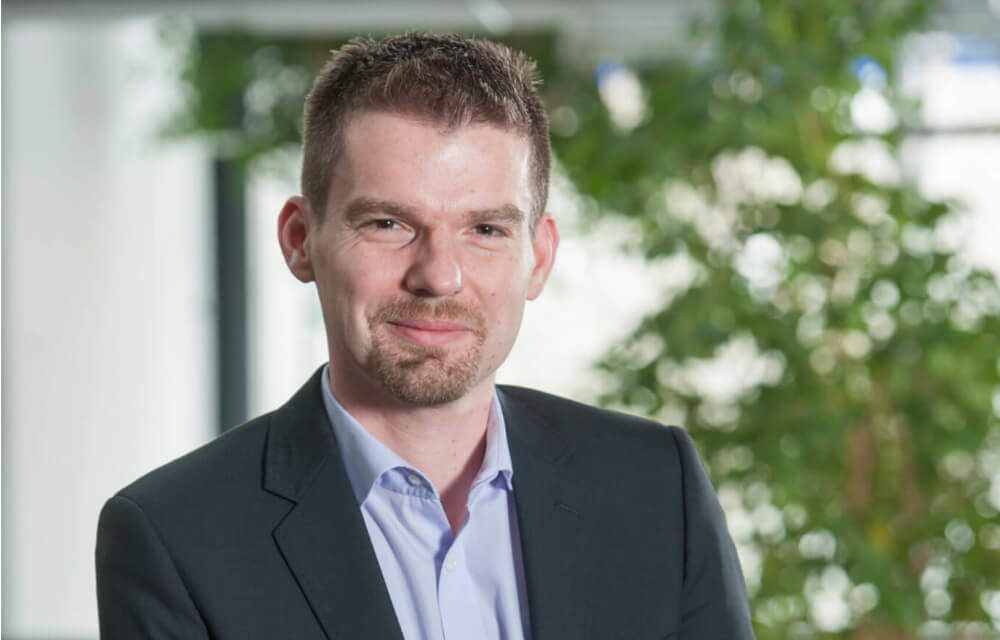News Archive

Christian Theobalt, head of the Graphics, Vision & Video research group at the Max-Planck-Institute for Informatics in Saarbrücken, has been appointed a scientific member by the Max-Planck-Society. As scientific director at the Max-Planck-Institute for Informatics, he will head a new department conducting research on fundamental questions in informatics at the intersection of computer graphics, image recognition and artificial intelligence.

Parkinson’s disease is the second most common neurodegenerative disease in the world, yet little is known about its causes and progression. To diagnose it early, make prognoses and develop therapies, biomarkers that indicate the development and course of the disease are needed. Bioinformaticians at Saarland University have been searching for such biomarkers, focusing on ribonucleic acids (RNA). In their study, which is now published in the journal ‘Nature Aging‘, they show that [...]

The “Symposium on Theoretical Aspects of Computer Science” is among the most important international conferences in theoretical computer science. This year, the event will be held entirely digitally, hosted by the Saarland Informatics Campus at Saarland University. From March 16 – 18, computer scientists from all over the world will discuss fundamental computer science topics such as algorithms and data structures, automata and formal languages, complexity, but also current topics such as quantum computing.

The Ursula Hill-Samelson Teacher’s prize goes to Leonore Dietrich from Bad Krozingen. The prize is awarded by the MNU – Verband zur Förderung des MINT-Unterrichts (Association for the Promotion of STEM Education) and funded by the Computer Science at Saarland University. The award, which is worth 2500 euros, is given to teachers from all over Germany who have made an outstanding contribution to the school subject of computer science. The award ceremony took place digitally during the 112th Federal Congress of the MNU.

The “Academy of Motion Picture Arts and Sciences” not only awards actors and filmmakers with the distinction known as the “Oscar.” Oscars are also awarded for technical merit. This year, the basic research and technological development of the “Intel Embree Ray Tracing Library” will be honored with the Technical Achievement Award. Three award winners earned their doctorates under Philipp Slusallek at Saarland University. The university professor and DFKI researcher [...]

Professor Jörg Hoffmann has been named a Fellow by the Association for the Advancement of Artificial Intelligence (AAAI). The “Fellows Program” is aimed at researchers who have made significant and lasting contributions to the field of artificial intelligence. Hoffmann is now one of only five scientists working in Germany to have received this honor since 1990. In particular, his work on automatic planning was central to the award.

Die Preisverleihung wird am 29. Januar ab 18:00 Uhr live auf den Youtube- und den Facebook-Kanal des Saarland Informatics Campus übertragen. Der mit insgesamt 15.000 Euro dotierte Preis wird von der Staatskanzlei des Saarlandes in den Kategorien „Text“, „Audio“ und „Video und Multimedia“ ausgelobt. Er soll herausragende, qualitativ hochwertige Berichterstattung über Themen der Informatik fördern.

Computer scientist Professor Holger Hermanns with the model of a nano-satellite ©Oliver [...]

Computer science professor Holger Hermanns with Kevin Baum, computer scientist and philosopher, in a lecture hall on the campus of Saarland University (February [...]

A team of international master students of computer science has developed a new university app. It has many functions that make life easier for students and [...]

They are about the size of a shoebox, high-tech, and soon tens of thousands of them will be orbiting the earth – so called nano-satellites. They can, for example, take high-resolution photos of our planet, or reinforce telecommunications networks. However, these actions take energy and this resource is scarce in the compact high-tech devices. Computer scientists at Saarland University now show how the energy consumption of satellites can be planned in such a way that they always work optimally [...]

The “AI Rankings” platform lists researchers from all over the world who work on topics related to artificial intelligence (AI) and ranks them according to their publication output. The website thus aims to address the growing interest in research on artificial intelligence and to provide an overview of the lively research activities in the field. A good dozen professors of computer science from Saarland University and the surrounding research institutes occupy top positions in national [...]

The master’s program “Entrepreneurial Cybersecurity” at Saarland University combines cyber security and computer science with founding an own company. The aim is to to make current research topics feasible for the market. A project of the first students who graduated from the program will be funded by the German Federal Ministry of Education and Research (BMBF) for one year with about half a million Euros.

Whether in fitness, medicine or in the entertainment industry, IT devices worn on the body, such as smart watches, are becoming increasingly popular. Such wearables benefit from the input device fitting as naturally as possible to the body – for example as electro-sensitive fabrics, so-called e-textiles. Computer scientists at Saarland University show how these special textiles can be produced in a comparatively easy way, thus opening up new use cases.

How can I get a drone to perform little tricks? Is it difficult to program a robot? And how does a machine actually learn? Children and young people can deal with questions like these in the Computer Science lab for schoolchildren. At present, the lab mainly offers online services aimed at students of different ages and also at teaching staff. They aim to promote the understanding of computer science in society as a whole.
1415161718 ...
27»
